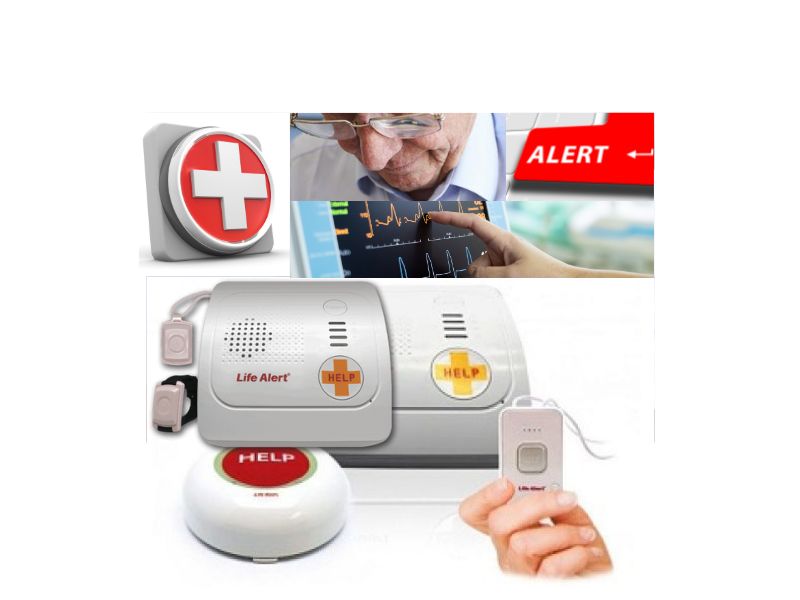Do All Medical Alert Systems Have a Monthly Fee?
Most medical alert systems require a monthly fee to cover the cost of the equipment, monitoring services, and other features. However, there are some medical alert systems that do not require a monthly fee, but these typically have limited features and may not provide the same level of protection and support as systems with a monthly fee.
Medical alert systems with a monthly fee typically provide round-the-clock monitoring services, which can include emergency response, medication reminders, wellness checks, and fall detection. These systems usually require a contract or a commitment for a specific period of time, such as a year or two, and may have cancellation fees if you terminate the service early.

Medical alert systems without a monthly fee, on the other hand, may require you to purchase the equipment outright and may not provide monitoring services. These systems may use a one-time payment model, where you pay for the equipment upfront and own it outright. Alternatively, some systems may offer a pay-as-you-go model, where you pay for monitoring services only when you need them.
Let’s compare different medical alert systems to find the one that best suits your needs and budget. Consider the features, the level of support and protection offered, and the overall cost when evaluating different options.
What are Medical Alert Systems?
Medical alert systems allow individuals to call for help in an emergency, even if they cannot reach a phone. These systems typically consist of a base unit that connects to the individual’s phone line or cellular network and a wearable device, such as a pendant or wristband, that the individual can use to call for help.
How Do Medical Alert Systems Work?
In an emergency, the individual presses a button on the wearable device, which sends a signal to the base unit. The base unit then connects the individual to a call center, where trained operators can dispatch emergency services, contact family members, or take other appropriate actions depending on the situation.
Types of Medical Alert Systems
There are two main types of medical alert systems: monitored and unmonitored.
Monitored Medical Alert Systems
Monitored medical alert systems require a monthly fee but provide the most comprehensive protection. With a monitored system, the wearable device is connected to a call center staffed by trained operators who are available 24/7. When the individual presses the button on their device, the call center will immediately be notified and dispatch emergency services, contact family members, or take other appropriate actions depending on the situation.
Depending on the specific system, monitored medical alert systems may offer additional features, such as fall detection or medication reminders.
Unmonitored Medical Alert Systems
Unmonitored medical alert systems do not require a monthly fee, but they also do not provide the same level of protection as monitored systems. With an unmonitored system, the wearable device is programmed to call a pre-set list of phone numbers in an emergency. If none of the numbers on the list answer, the system will not provide any further assistance.
Pros and Cons of Medical Alert Systems Without Monthly Fees
Pros of Medical Alert Systems without Monthly Fees
- Lower Overall Cost: The most apparent advantage of a medical alert system without a monthly fee is the lower overall cost. Instead of paying a monthly fee, users typically pay a one-time fee for the equipment and services. This option can be cost-effective for individuals on a tight budget or who want to avoid committing to a monthly subscription.
- No Long-Term Commitment: Medical alert systems without monthly fees also offer greater flexibility in terms of commitment. Users can purchase the equipment and services without committing to a long-term contract or subscription. This is ideal for individuals still determining how much they will use the system or who may only need it briefly.
- No Monthly Bills: Another advantage of a medical alert system without a monthly fee is the absence of monthly bills. Users only pay for the equipment and services once, eliminating the need for ongoing payments. This can be a convenient option for individuals who prefer to avoid the hassle of monthly bills.
- No Monitoring Fees: Some medical alert systems charge a monthly monitoring fee on top of the equipment fee. With a system that does not have a monthly fee, there are no monitoring fees to worry about. This can be significant cost savings over the long term.
Cons of Medical Alert Systems without Monthly Fees

- Higher Upfront Cost: While a medical alert system without a monthly fee may be more cost-effective over the long term, the upfront cost can be higher. Users must pay for the equipment and services upfront, which can be a significant expense for some individuals.
- Limited Features: Medical alert systems with monthly fees may offer different features and services than systems with monthly payments. For example, they may not include fall detection, medication reminders, or mobile GPS tracking.
- No Professional Monitoring: Medical alert systems without monthly fees may not offer professional monitoring services. Instead, users may need to rely on family members or caregivers to respond in an emergency.
- No Warranty or Support: Finally, medical alert systems without monthly fees may not have a warranty or technical support. This can concern individuals needing assistance with the equipment or services.
FAQs
How much does a medical alert system cost?
The cost of a medical alert system can vary widely depending on the type of system you choose and its specific features. Monitored systems typically require a monthly fee, while unmonitored systems do not.
Can medical alert systems be used outside of the home?
Depending on the specific system, many medical alert systems can be used inside and outside the home. Some devices are designed to work only within a particular range of the base unit, while others use cellular networks to provide coverage anywhere that there is cell service.
What happens if the power goes out?
Most medical alert systems have a battery backup to keep the system running during a power outage. However, checking the system’s battery life and having a backup plan if the battery runs out is essential.
Can people with disabilities use medical alert systems?
Yes, medical alert systems can be used by people with a wide range of disabilities, including those with mobility impairments, vision or hearing loss, or cognitive impairments. Many systems offer wearable devices that are designed to be easy to use and that can be adapted to meet the needs of different users.
Can medical alert systems be used by people who don’t speak English?
Many medical alert systems offer multilingual support, allowing users to communicate with operators in a language other than English. However, checking with the specific device is essential to ensure that multilingual support is available.
Conclusion
Medical alert systems can provide peace of mind for seniors and disabled individuals, but choosing the right device for your needs is essential. Monitored systems offer the most comprehensive protection, but they also come with a monthly fee. Unmonitored systems are less expensive but provide a different level of security.
When choosing a medical alert system, consider factors such as your budget, the level of protection you require, and any additional features you may need, such as fall detection or medication reminders.
